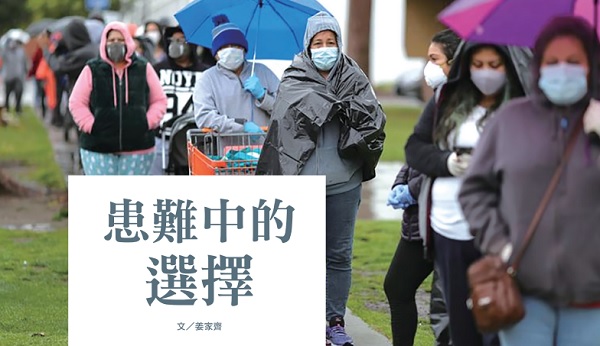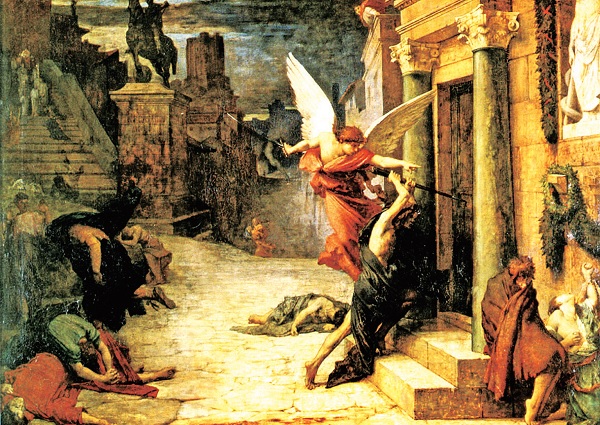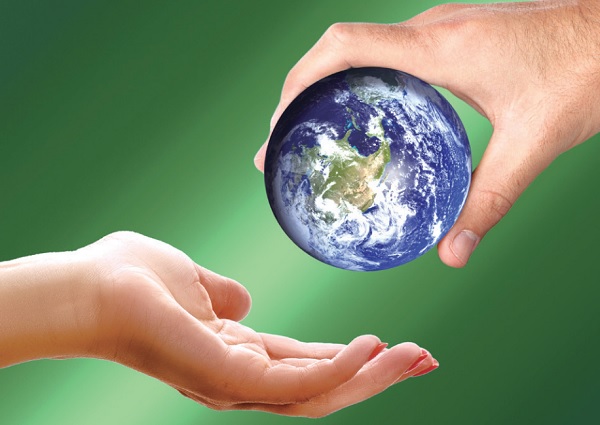Choice in times of trouble

▲During the epidemic, many people in the United States needed to queue up to receive food.
The biggest impact of COVID-19 on me is watching the news for a long time and spreading information about the epidemic raging around the world among my friends.
In mid-March, several Peking University students I once taught talked about in a WeChat group that many Americans chose not to wear masks, and many people chose to rush to buy guns and ammunition. One of them, who lives in the United States, also said that she was waiting in line. Take the gun license test. Speaking of queuing, at that time, the news was overwhelmingly reporting on long queues across the United States rushing to buy daily necessities, and long queues waiting in the cold and drizzle to receive food relief.
Choosing to buy daily necessities and food is easy to understand and is a necessity of life. As for those who choose to rush to buy guns and ammunition, some analysts point out that it is those who believe that the epidemic may cause social unrest and take actions to protect the lives and property of individuals and their families.
羅馬帝國時代基督徒的選擇1
According to historical records, there were four major plague epidemics during the Roman Empire. The first occurred in AD 65, during the era of the infamous tyrant Emperor Nero, and when the Roman Empire began to severely persecute the ascendant Christianity. 22
Four major plagues ravaged various parts of the empire, killing a large number of people from all classes. Records mentioned: "...naked corpses were lying everywhere, and they could not be buried for several days. Sometimes they were eaten by dogs. This is What a tragic scene!” At that time, government officials, religious leaders, and even doctors were not only helpless and unable to protect themselves, but many also chose to abandon their posts and flee.
Christians, who were still outside the law at that time, had different choices. They spared no effort to care for the sick and bury the dead in times of adversity, actively expanded the social assistance network, and timely preached the love of Christ, resulting in more and more converts. During the time of Emperor Constantine, the number of Christians reached 1/10 of the total population (approximately 6 million). In 313 AD, Constantine promulgated the Edict of Milan legalizing Christianity and accepted Christianity on his deathbed. The Roman Empire no longer persecuted Christians.
Of course, there were complex reasons for the rise of Christianity, and its prominence during the plague was just one of them. However, the frequent outbreaks of plague in ancient Rome, and at that time "the soup that Christians patiently delivered to their mouths instead of the prayers that Christians offered for them" healed those helpless survivors and created a great foundation for Christianity. The rise of China provides "major, even decisive, development opportunities."

▲When the plague struck the Roman Empire. (Photo collected by Musée d'Orsay, Paris)
Only generosity can save us
學生們的微信群討論,有一位發出一篇由《世界是平的》(The World Is Flat)作者湯瑪斯‧佛里德曼(Thomas Friedman)撰文的〈疫情讓我們處在公元前後那樣的分水嶺〉3。學生們對這位作者不陌生,因為他的書《世界是平的》是我指定的教材之一。
The article mentioned that the dividing line between AD is Before Christ and After Christ, and the long-term impact of COVID-19 has begun a new dividing line between Before Corona and After Corona. The article analyzes how globalization has interconnected the world, leading to the widespread spread of COVID-19 and its unprecedented impact on the world. It also analyzes its impact on American culture and economic development. The title of the closing paragraph of the article is "Only generosity can save us", summarizing how the United States should respond after the epidemic. The last sentence is: "While closing the cultural distance that divides us, we need to loosen our wallets. In the post-coronavirus world, our society will be stronger and friendlier."
I quoted this sentence, "Only generosity can save us," as the conclusion to the discussion among students on the choice to buy a gun.

▲Thomas Friedman’s article reminds readers that while narrowing the cultural distance that divides us, we need to loosen our wallets. In the post-coronavirus world, our society will be stronger and friendlier.
What the Bible teaches about generosity
The Old and New Testaments are full of teachings about generosity and helping others. Here are just a few examples.
“Honor your father and your mother, that it may go well with you and that you may live long on earth. This is the first commandment with a promise.” (Ephesians 6:3) “Whoever shows mercy to the poor lends to the Lord, and the Lord will repay him for his good deeds.” (Ephesians 6:3) ” (Proverbs 19:17) Honoring parents ranks first in the behavioral norms of Chinese culture, but compassion for the poor and honoring parents are rarely placed on the same responsibility ladder. Of course, it is impossible to imagine how “let God owe me” is. thing.
Luke 3 records that John the Baptist preached repentance and prepared for the coming of Christ Jesus. When John asked the crowd what they should do, he said, "He who has two garments, let him give to the one who has not; and whoever has food must do the same." (Refer to Luke 3:11) What John is saying is that even if you only have meager resources, you should do good and distribute them to those in need.
Matthew 25:37-40: “The righteous will answer him, ‘Lord, when did we see you hungry and feed you, or thirsty and give you something to drink? When did we see you a stranger and let you stay, or Naked and clothed you? And when did he see you sick or in prison and come to see you?" The king will answer him, "Truly I say to you, you have done these things to one of the least of my brothers. "You have done it to me." This passage is a relatively long teaching of Jesus before his crucifixion. It does not mention spreading the gospel, church service, etc., but it reminds us of the importance of generosity and helping others in the judgment of the last days.
2 Corinthians 8:1-2 says: “…I declare to you the grace of God which was given to the churches of Macedonia, even in the time of great trial in their tribulations…and in their extreme poverty this grace became especially evident. "The gospel was spread from the Jews to the Gentiles. The ethnic barriers and conflicts at that time were far greater than they are now. It was a very chastening process. Romans 15:26-27 talks about Gentile believers donating money to help the Jerusalem believers’ living needs, which is the Gentile church repaying its debt of spiritual grace to the Jerusalem church, 2 Corinthians 8:13-14 It was also mentioned that this is the principle for different regions to help each other.
stand up! Let's do this good work together
Although the long-standing Chinese culture has many teachings on poverty alleviation and emergency relief, in modern Chinese society, there is indeed a relatively lack of the custom of helping people other than close relatives. The Charity Aid Foundation conducts the World Giving Index survey every year, sampling three behaviors of residents everywhere: 1. Helping strangers in need; 2. Charitable donations; 3. Engaging in volunteer work. The 2019 report summarizes the rankings of the past ten years. Among the top ten are Myanmar, Sri Lanka and Indonesia, while Singapore, which has a large number of Chinese, is ranked 46th, Taiwan is 48th, and mainland China is at the bottom at 126th. 44
Perhaps Chinese Christians are more generous than ordinary Chinese in helping others, especially during this epidemic. Is this really the case? After a cursory review of the church’s sermons, exhortations and life testimonies on the Internet in the past few months about the epidemic, almost all of them are about how to wait and look forward with peace of mind, better arrange your own life, etc. There are very few exhortations to show compassion and help the disadvantaged groups in society in times of trouble. clan.
Mr. Churchill, who led Britain to overcome difficulties and achieve victory in World War II, famously said: "Don't waste a good crisis." Looking back on the history of the church, I hope that Chinese Christians will also choose not to waste this crisis, just like Christians in previous generations when the plague was raging. As a manifestation of the times, rise up to do good works of mercy and relief, so that your life can be exercised and the gospel can be spread widely.
my choice
Strictly speaking, the epidemic is not a big hardship for me who lives in Taiwan. On the contrary, the development of the epidemic in the United States and the resulting economic and social problems are shocking. I am like most of my peers who grew up in Taiwan: I have received relief from the United States, received help from American missionaries in the process of believing in Christ, and have studied, worked, and lived in the United States for many years. It can be said that we have indeed benefited a lot from the United States, and it is time to repay it.
In the past, my dedication and donations focused on the second half of the year. After prayer and some planning, I chose to donate and donate in advance, and also increased my donations to support food relief units in the United States. Thinking that I have a family living in Boston, and I often pray for my family and the Boston area during the epidemic, I chose to donate to the food bank in the Boston area and put their ministry needs in my regular prayers. Perhaps this is the fulfillment of the saying: "Where your money is, there your heart will be too"!
Notes
1. This section is based on "Plagues in the Middle and Late Period of the Ancient Roman Empire and the Rise of Christianity", 2020-04-06 Oulu Business School,https://kknews.cc/history/9vb4r6b.html, original text "Journal of Beijing Institute of Technology: Social Science Edition" 2012 Issue 6.
2. Collection of Musée d'Orsay, Paris. Original URL:https://kknews.cc/history/4bnyp53.html.
3. The author of "The World is Flat" writes: "The epidemic has put us at a watershed like before and after BC",https://www.chainnews.com/zh-hant/articles/073634932398.htm.
4. "CAF WORLD GIVING INDEX 10TH EDITION",https://www.cafonline.org/about-us/publications/2019-publications/caf-world-giving-index-10th-edition.
Jiang Jiaqi, was born in mainland China and grew up in Taiwan. He studied and worked in the United States, and also held management positions in technology companies in Taiwan and mainland China. He taught at Peking University from 2006 to 2017, and served as the executive director of Shanghai Shunyi Charity Consulting Company from 2015 to 2018.
